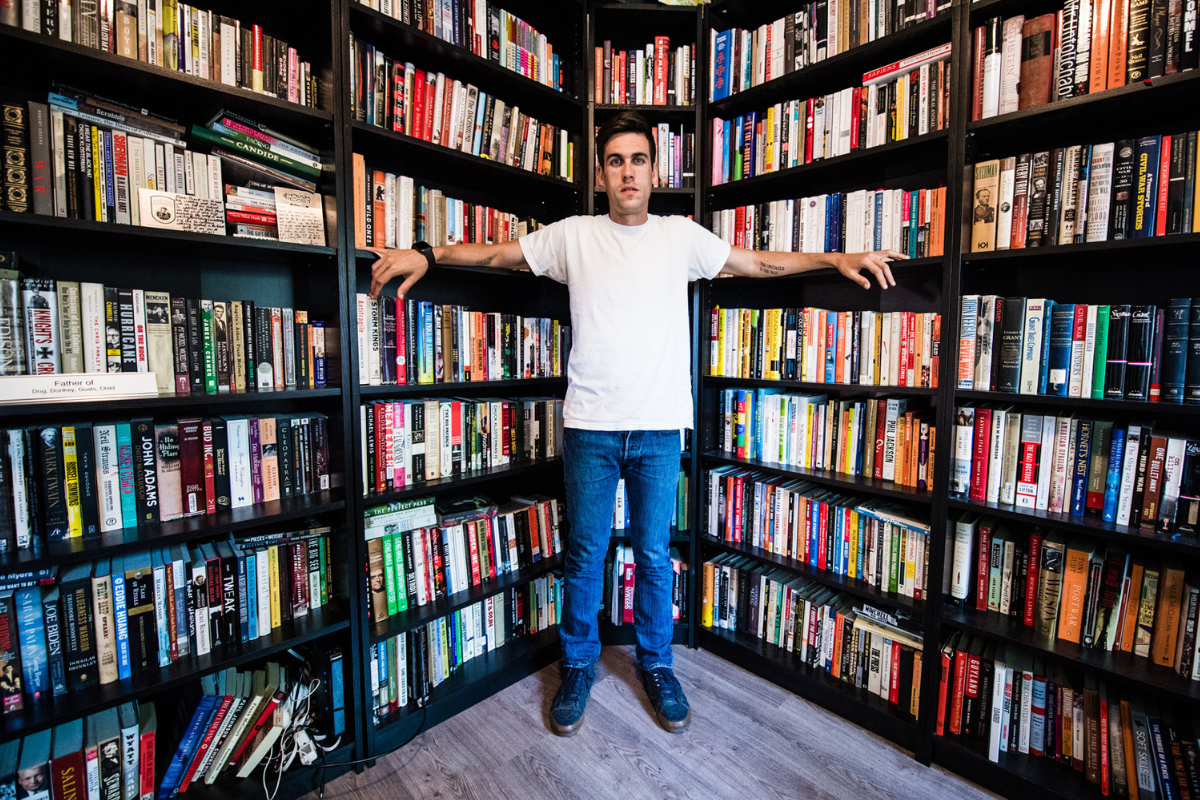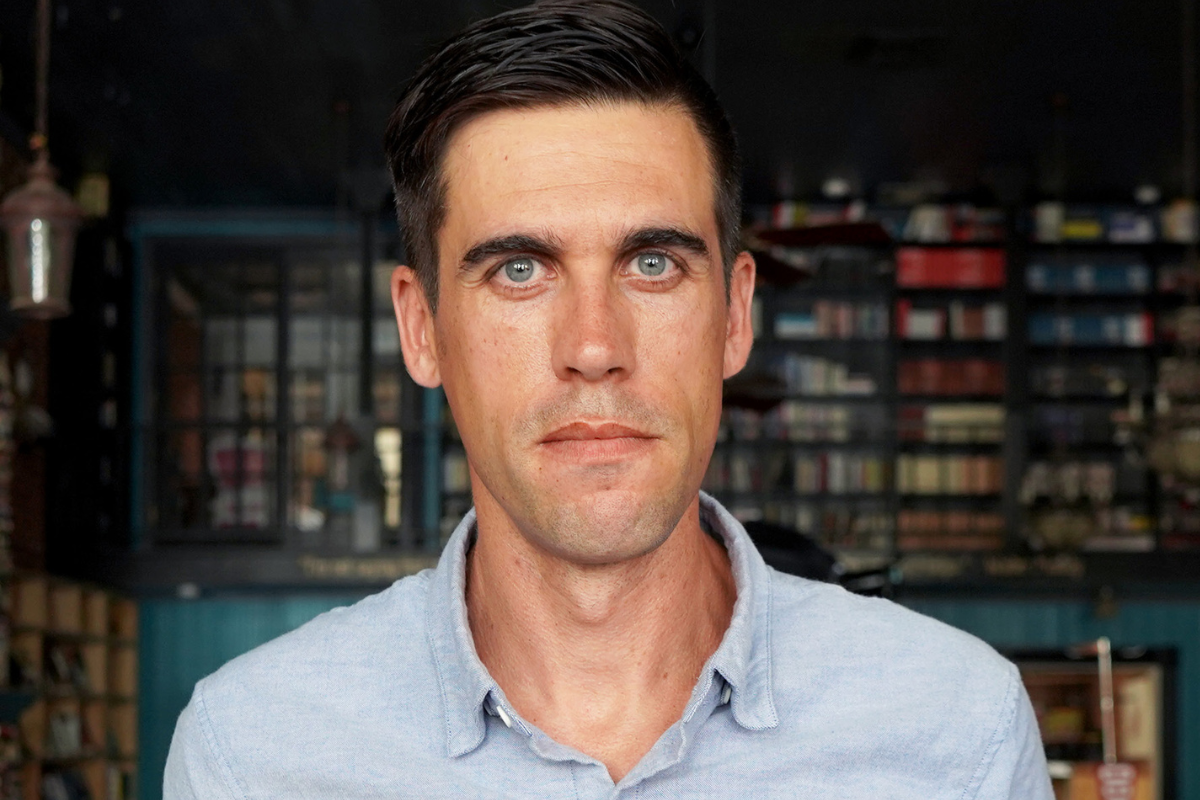Cybersecurity threats, AI advancements and layoffs are the modern-day equivalents of the shipwrecks, exile and war encountered in ancient times – the common denominator being that situations of high stress or adversity are unavoidable.
For contemporary Stoics like Ryan Holiday, it makes perfect sense to lean into the wisdom of history’s great leaders, most notably Marcus Aurelius, Epictetus and Seneca.
When Holiday first stumbled upon this ancient school of thought via a book recommendation during his college years, he recalls being blown away by it.
“Stoicism tends to be relevant and popular in moments of disruption and disarray, chaos and crisis,” he says. “And it’s really this philosophy around orienting yourself to doing what you can in the situations you happen to find yourself in.”
Giving Stoicism to the masses
A common misconception is that to be stoic is to suppress your emotions, but for Holiday this notion is far from the truth. “The Stoics ran for public office. The Stoics had families. The Stoics loved going to the theater, and they made great works of art,” he says.
“It wasn’t that they were emotionless, but they did try to be less emotional in high stakes situations. And they tried not to be driven by destructive emotions. Anger, fear, anxiety, jealousy, these things that don’t make us better.”
But these philosophers, who were once the rock stars of their time according to Holiday, eventually became names that were discussed primarily within academic circles.

“Stoicism tends to be relevant and popular in moments of disruption and disarray, chaos and crisis.”
As the former Marketing Director of American Apparel and author of Trust Me, I’m Lying: Confessions of a Media Manipulator, Holiday knew that simply publishing a book would limit the impact and reach that Stoicism ultimately deserved.
“I realized people listen to podcasts, people consume content on social media. And I’ve tried to take the ideas that I spend a lot of time writing and thinking about, and I try to translate them in all the different mediums that people consume stuff in today,” he explains.
“And so, I think that has been a really powerful means to spread the ideas for sure.”
The legacy of the Stoic philosophers
Holiday’s work affirms Marshall McLuhan’s famous words ‘the medium is the message’, as his multi-format delivery has successfully garnered recognition from entrepreneurs, thought leaders, business founders and countless others.
So popular is his work that it’s been translated into more than 30 languages.
“I think a lot of the reason my work’s popular is just because it’s these great timeless ideas from the Stoics, combined with these tools that allow you to reach millions of people all over the world,” he reflects.
Robert Greene, who wrote The 48 Laws of Power, noted that Holiday’s The Obstacle Is the Way should be by every leader’s bedside. His book, The Daily Stoic, offers 366 days of Stoic insights and exercises, and was an instant bestseller.
The Daily Stoic has in fact grown to become a trusted multi-media platform where Holiday offers nuggets of Stoic-inspired wisdom on Instagram, YouTube, his podcast and email newsletter. Each of these accounts has attracted thousands, and in some cases millions of followers.

“If the leaders focus solely on outcomes, what they’re neglecting is the process that actually gets you there.”
“The Daily Stoic is already so far beyond what I could have possibly imagined,” admits Holiday. “The book sold millions of copies. Even on YouTube, we’ve done almost 150 million views and we’re at three million Instagram followers.
“It’s unreal to me that every day, I send out this email for The Daily Stoic, which is just one sort of Stoic inspired meditation every day.”
Through this multi-layered approach, modern audiences have access to the legacy of Stoic philosophers, and it’s precisely the people who have never dabbled in philosophy that interest Holiday the most.
“It’s really exciting. You talk to someone and they’re a long haul truck driver. And they would’ve previously been listening to music or talk radio,” he says.
“Instead, they’re listening to audiobooks as they drive across Australia or the United States,” he enthuses. “And I just love that. And so, audiobooks are this incredibly enormous addition to reading.
“I remember when The Obstacle Is the Way came out, the audiobook was like this afterthought that the publisher didn’t even care about. And the book is now celebrating its 10-year anniversary. And probably 50 percent of the sales are in audiobooks.”
Stoic leadership at its best
When asked how he defines Stoicism and its value for leaders in particular, Holiday sums it up succinctly. “The idea is we don’t control the situation we’re in, but we do control whether we act with courage, or discipline, or justice or wisdom [the four cardinal virtues of Stoicism],” he says.
“People were in really difficult, unexpected or strange situations, and instead of being set back by them, managed to lead forward because of them. And that’s a very key Stoic idea. The idea that the obstacle is the way. What we think is bad can actually be good.”
A quick scroll through the Daily Stoic on Instagram is akin to having a dialogue with your conscience, but worded more succinctly. The teachings are after all ‘timeless truths’, as Holiday puts it.
“Ultimately, leaders are judged on outcomes. But if the leaders focus solely on outcomes, what they’re neglecting is the process that actually gets you there,” he says.
From a Stoic perspective, planning ahead and taking deliberate steps toward a fruitful outcome are favored over success that occurred merely by chance or was motivated by superficial intentions such as money or fame.

“The Stoics have this exercise, it’s actually called premeditatio malorum, which means a premeditation of evils.”
“So the Stoics have no problem with ambition, but they just want that ambition to be tied to things that are up to you. So did you do the best job possible? Did you write the best book possible? Did you do everything to set yourself up for success?”
To unpack this idea further Holiday quotes Dwight Eisenhower, who brilliantly captured the paradox of planning by stating that “plans are worthless, but planning is everything”.
“And so, that’s how I think about it,” Holiday says. “You have to have a plan because you can’t just be winging it. But the idea that it’s going to go exactly the way you want it to go is arrogant and delusional.
“The Stoics have this exercise, it’s actually called premeditatio malorum, which means a premeditation of evils. And it’s this idea that the things that surprise you hurt the most.”
With this mind, anticipating the unexpected isn’t aimed at controlling situations so much as it is about setting yourself up for success with the resources and tools available to you.
The power of meditation and reflection
If you’ve ever had the cathartic experience of putting your feelings of stress and anxiety down into words, then you’re likely familiar with the power of journaling. As an advocate of this practice, Holiday is convinced of its value for leaders.
“I think journaling as a form of meditation and reflection is probably the single most important tool that a leader could have in their tool kit,” he insists.
“You’re supposed to be reading about these ideas, talking about them, writing about them. You can see in Meditations [by Marcus Aurelius] how it made Marcus Aurelius a better leader. And I’m fairly confident that anyone who starts that practice will see results as well.”
To have access to the private thoughts of an individual who has walked down the path of leadership is certainly rare, but perhaps secretly wished upon by even the most competent go-getter.

“To me, the Stoic journaling practice is like anticipation, like sitting down and thinking about what you’re going to do, how you’re going to do it, how it could go, where it could go wrong.”
In this book, which Holiday considers as both his personal favorite and the most accessible Stoic literary work, the issues and anxieties of a Roman emperor are surprisingly relatable.
“To me, the Stoic journaling practice is like anticipation, like sitting down and thinking about what you’re going to do, how you’re going to do it, how it could go, where it could go wrong,” Holiday explains.
“And then, debriefing after; how you did, how you want to do better, what you did well, what you learned. And that process, that loop of preparing and reflecting, preparing and reflecting is a really powerful reinforcing process that makes you a better leader.”
In a similar vein to Daoism, Stoicism advocates living in accordance with nature. In other words, the things that threaten to destabilize and ruin our plans don’t have to bring out the worst sides of us – in fact, they might just be a gift when perceived from a different angle.
If you’re unsure of which of the Stoic sages resonate with you the most, consider signing up to receive the Daily Stoic newsletter.
To experience Holiday discuss the big Stoic ideas and answer your questions live in the flesh, buy tickets here for his upcoming Australian shows in Sydney on 31 July and in Melbourne on 1 August.







